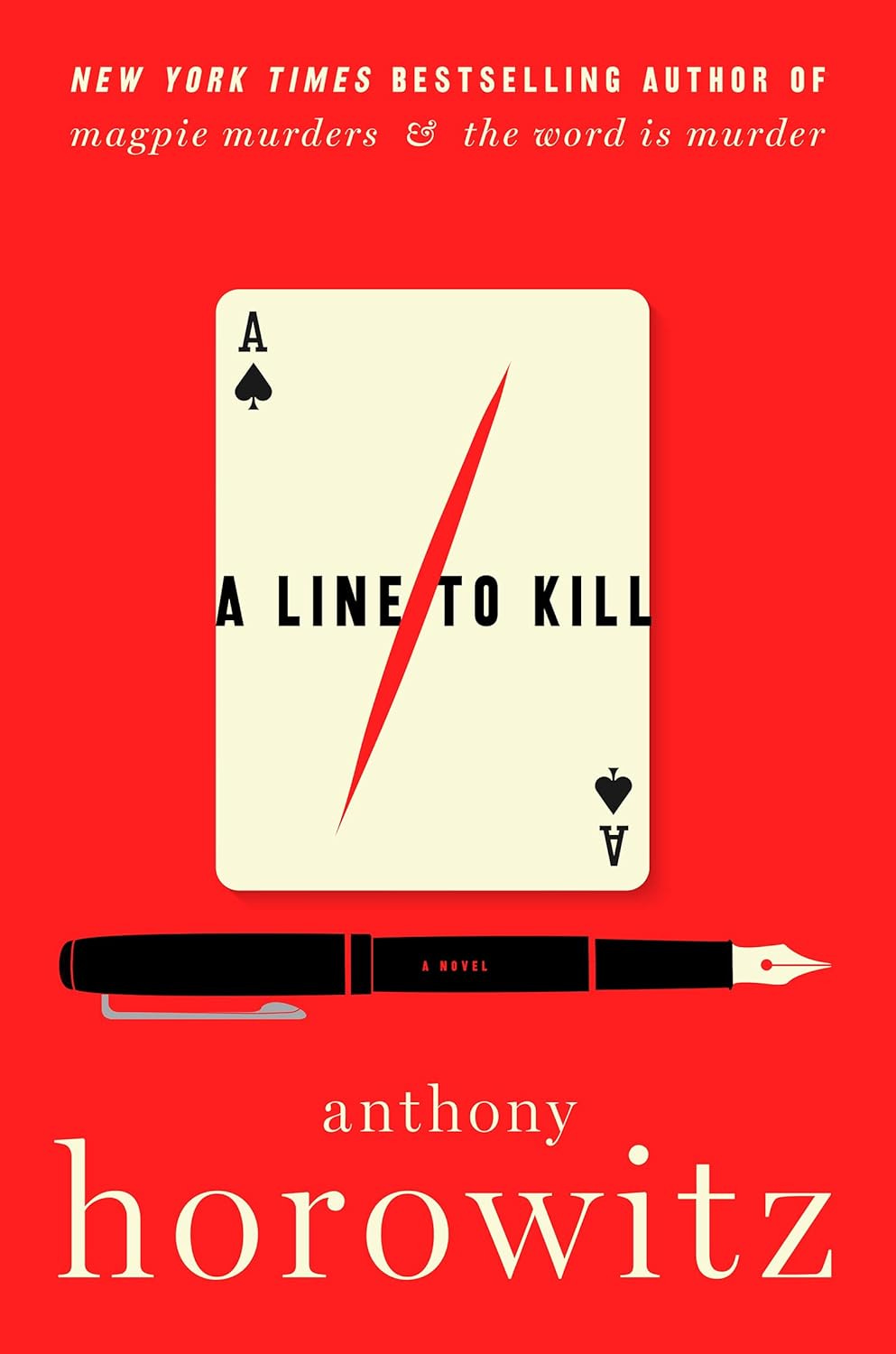What To Teach Young People
Yuval Noah Harari says no one has any idea what to teach young people that will still be relevant in twenty years. I disagree.
This is the second week in a row where I’ve had a post halfway drafted before running across something that gets me riled up enough to push my draft onto the stack and start over with a blank page.
This week, it’s Yuval Noah Harari's recent interview on the Late Show with Stephen Colbert. Colbert and Harari were in the middle of talking about AI and the way it will shape our future when Harari caught my attention: “Today, nobody has any idea what to teach young people that will still be relevant in twenty years.”
The question of what we should be teaching our kids is profoundly important. As a dad to three little kids and a professor teaching a whole bunch of other people's children at Harvey Mudd, I care a lot about getting the answer to this question right. It's a big deal in general and an existential one for me in particular if we truly have no idea what to teach them.
Without a doubt, the explosion of AI will significantly impact the specific skills students need to thrive in their careers. But just because the future is uncertain doesn’t mean we don’t or can’t know what to teach. Rather, our job as educators today is to provide young people with a well-rounded education that will prepare them for the changes of tomorrow and help them to form a vision of who they want to be.
I agree with Harari that the world is going to look a lot different in twenty years than it does now. But what he and I think that means for education today is less about those changes and more about what we think human flourishing looks like.
Education is not primarily about the acquisition of skills like learning how to code, designing an engineering system, analyzing a business plan, or critiquing an essay. It's about learning to think, to ask questions, and to foster virtue. There’s a discussion to be had about how well we are doing at achieving that goal, but the first step is to be clear about what we’re aiming for and why.
The Absent-Minded Professor is a reader-supported guide to human flourishing in a technology-saturated world. These essays are public and will never disappear behind a paywall, but if you value my writing and have the means to support it, please consider becoming a paid subscriber.
Creature vs. Machine
What we should be teaching young people is strongly influenced by what we believe it means to be human and what a life full of meaning and purpose looks like. I've written before about Wendell Berry and his distinction between creatures and machines and I think it deserves repeating here. In a particularly poignant passage that has been stuck in my head, Berry, writing in response to well-known American biologist E. O. Wilson's perspectives on reductionism puts his flag in the ground.
What I am against—and without a minute's hesitation or apology—is our slovenly willingness to allow machines and the idea of the machine to prescribe the terms and conditions of the lives of creatures, which we have allowed increasingly for the last two centuries, and are still allowing, at an incalculable cost to other creatures and to ourselves. If we state the problem that way, then we can see that the way to correct our error, and so deliver ourselves from our own destructiveness, is to quit using our technological capability as the reference point and standard of our economic life. We will instead have to measure our economy by the health of the ecosystems and human communities where we do our work.
It is easy for me to imagine that the next great division of the world will be between people who wish to live as creatures and people who wish to live as machines.
Harari, for his part, seems to be convinced that humans are on their happy way toward becoming machines (or at least being ruled by them) even if we haven't fully arrived as of yet. Within the first few sentences of a talk that he delivered in 2017 at the University of California at Santa Barbara, Harari proclaims that the end of what we know as our existence as a species is near, coming within the next century or two at most.
What does he believe will take over in our place? Algorithms. Sounds like Berry’s nightmare come true: “To allow machines and the idea of the machine to prescribe the terms and conditions of the lives of creatures.”
In an interview with the New York Times Magazine in 2021, Harari further reflects on some of the themes of his book Homo Deus which explores the impact of the information revolution on the human individual. In it, he reflects on how that revolution dramatically shifts the foundation of what it means to be human.
No, a human being like all other organisms is just an information-processing system that is in continuous flow. It has no fixed assets. What are the implications in political terms? In social terms? I’m not sure. This is what I would be keen to explore.
Further down the page, he reflects on transhumanism and how technology might enable us to surpass our physical and intellectual limits.
Transhumanism is about what it is to be human. I mean, there are different types of transhumanism, but one interpretation is that transhumanism is fulfilling the true potential of the human. Which depends of course on what you understand a human to be. This is the question that we want to pursue, and it’s not a question with easy answers.
Harari and Berry see the world in two fundamentally different ways. For Berry, there is a stark difference between a creature, “a thing created,” and a machine which at its core is mechanical and artificial. As is commonly the case, what you believe about a specific issue like education or human flourishing is deeply connected to what you believe about the nature of reality and the big questions of philosophy and religion.
Teaching for the future
Just because we don't know what the world will look like in twenty years doesn't mean we don't know what our young people should be learning now. Education is not about answers. Sure, we want our kids and our students to learn useful skills that will help them make their way in the world, build a meaningful life, and contribute to their flourishing and the flourishing of others. However, believing that the goal of education is primarily about acquiring skills to help our students provide for their physical and emotional needs is missing the forest for the trees.
The heart of education is not about answering questions, it's about cultivating the ability to ask good ones. Education is about learning how to think, forming a vision for how we should live, and fostering virtues like curiosity, patience, wisdom, courage, justice, integrity, humility, resilience, and gratitude.
To say that no one has any idea what to teach young people today is to say that education is primarily about helping students know what to do instead of who to be. Everyone is entitled to their own opinion and I share a great deal of Harari's concern and excitement about the impact of technology on our future, but I for one know what I'm teaching my kids and students.
The virtues, character, and thoughtfulness to find and ask good questions that I'm striving to help my kids and students build today might be useless in twenty years, but I sure doubt it. Even as technology ushers in a new realm of possibility, we have a choice and responsibility to steward it well.
For that future to be a bright one, we will need virtue more than ever.
Required Reading this Week
Here’s a short list of some great pieces I’ve read this last week.
- asks what education is all about anyhow and reflects on how his vision is at odds with that of Sal Khan.
- reminds us why writing isn’t going anywhere in the age of genAI.
- says he’s going to fight generative AI.
- interviews Cal Newport about his new book Slow Productivity.
I’m so glad that
is back in the saddle and writing more regularly again. I missed his voice in my inbox during his recent hiatus. His recent post “The Art of Living” explores another angle of Wendell Berry’s creature vs. machine dichotomy and asks whether we might learn how to live well by living within our limits, just as an artist must work within the constraints of her medium. Highly recommended.
The Book Nook
We just finished our latest Horowitz and Hawthorne murder mystery, A Line to Kill, for book club. Another good one in Horowitz’s unique style of writing himself into the mysteries.
The Professor Is In
This week Harvey Mudd is on Spring Break. I’m enjoying a break from the craziness of the semester and taking advantage of the space for some rest, relaxation, and time with the family. I even got out for a bike ride yesterday!
Leisure Line
Handel’s Ice Cream is one of our favorite ice cream spots. Pro-tip: the 4-scoop sampler is a great bang for your buck, especially with young kids. Order with a cup on the side and it’s significantly cheaper than getting everyone individual servings.
Still Life
The backyard Camellia trees are in bloom again!









“It's about learning to think, to ask questions, and to foster virtue.”
Beautifully put.
Great post! I especially liked the following: "The heart of education is not about answering questions, it's about cultivating the ability to ask good ones." As a middle school teacher, I love forcing my students to write questions about a text rather than simply answer my questions. It throws them for a loop and inevitably ignites great discussions!
Also I chuckled at your John Warner recommendation. His "Why They Can't Write" adorns my bookshelf, along with other works. I didn't realize he had a Substack!